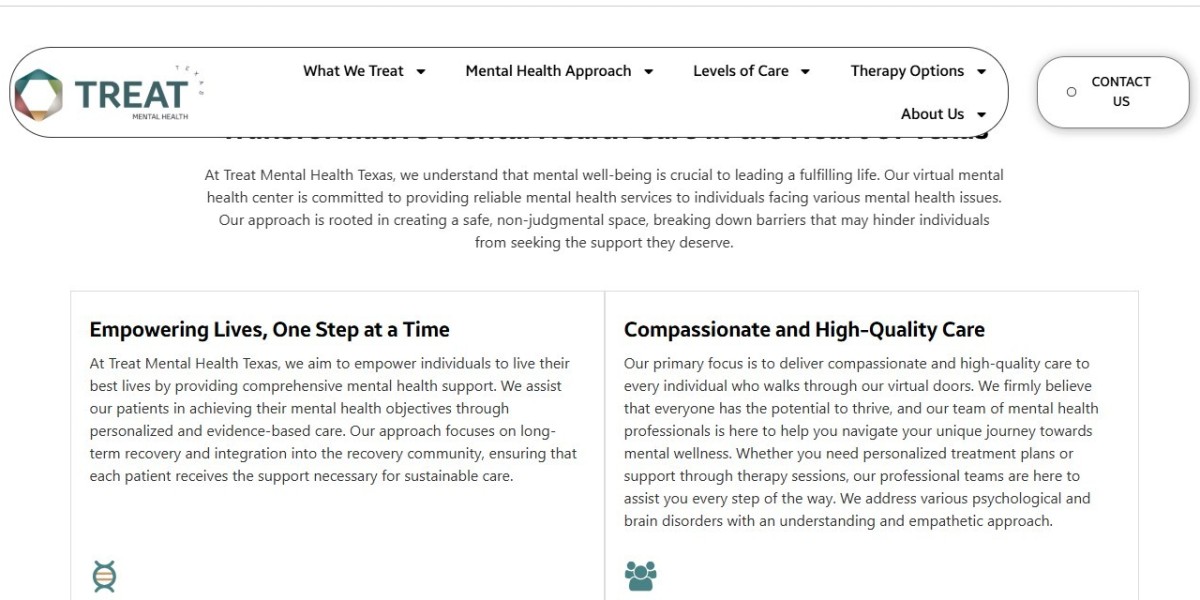Bipolar disorder is a mental health condition that causes extreme mood swings, including emotional highs (mania or hypomania) and lows (depression). These mood swings can be unpredictable, disruptive, and often have a significant impact on various aspects of life, including work, relationships, and personal well-being. If left untreated, bipolar disorder can lead to complications, including poor physical health, financial instability, and strained social relationships. This is why bipolar disorder treatment is crucial to improving the overall quality of life for individuals affected by the condition.
In this blog, we will explore how effective bipolar disorder treatment can significantly enhance the quality of life for those living with the disorder, by improving emotional stability, boosting mental health, and helping individuals regain control over their daily routines.
Understanding Bipolar Disorder and the Need for Treatment
Bipolar disorder is a chronic mental health condition that affects approximately 1% of the global population. The hallmark of bipolar disorder is the occurrence of mood swings that can range from periods of extreme energy, creativity, and impulsivity (mania or hypomania) to long periods of deep sadness, hopelessness, and fatigue (depression). These mood swings can happen unexpectedly and cause major disruptions in a person’s personal and professional life.
While bipolar disorder is a lifelong condition, bipolar disorder treatment can help individuals manage symptoms, reduce the frequency and severity of mood episodes, and enable them to lead more stable, fulfilling lives. Proper treatment typically involves a combination of medication, psychotherapy, lifestyle changes, and support from loved ones.
How Bipolar Disorder Treatment Can Improve Emotional Stability
One of the most significant ways bipolar disorder treatment can improve a person’s quality of life is by stabilizing their mood. Individuals with bipolar disorder often experience intense emotional highs and lows that can feel overwhelming and out of control. Without treatment, these extreme mood swings can interfere with daily functioning and lead to erratic behavior, impulsivity, and relationship difficulties.
Medications such as mood stabilizers, antidepressants, and atypical antipsychotics are commonly used in bipolar disorder treatment to regulate mood. These medications work by balancing chemicals in the brain, helping to reduce the occurrence and severity of manic and depressive episodes. By stabilizing mood, individuals with bipolar disorder are better able to manage their emotions and maintain a consistent, balanced state of mind.
Emotional stability is a crucial component of quality of life, as it allows individuals to function at work, in social settings, and at home. When a person’s mood is stable, they are less likely to make impulsive decisions or engage in risky behavior, and they are more capable of managing stress in healthy ways.
Improving Mental Health and Cognitive Functioning
Bipolar disorder doesn’t just affect mood—it can also take a toll on a person’s cognitive functioning. Many individuals with bipolar disorder experience difficulties with concentration, memory, and decision-making, especially during manic or depressive episodes. These cognitive challenges can affect productivity at work, the ability to maintain relationships, and general day-to-day functioning.
Effective bipolar disorder treatment can help address these cognitive symptoms by stabilizing mood and reducing the frequency of mood swings. Medications such as mood stabilizers (e.g., lithium, valproate) and antipsychotics can help improve overall mental functioning by preventing the extreme mood episodes that often impair cognitive abilities. Furthermore, therapy and psychotherapy approaches such as Cognitive Behavioral Therapy (CBT) can assist individuals in developing healthier thought patterns and coping strategies to improve focus and decision-making.
Improved cognitive function is essential for maintaining a fulfilling quality of life. When individuals can think clearly, make informed decisions, and manage their emotions, they are more likely to succeed in their careers, maintain healthy relationships, and engage in meaningful activities.
Enhancing Social Relationships and Reducing Conflict
One of the most challenging aspects of bipolar disorder is its effect on relationships. The mood swings associated with the condition can cause tension, miscommunication, and emotional strain between individuals with bipolar disorder and their loved ones. Family members, friends, and colleagues may not always understand the unpredictable nature of the condition, which can lead to frustration and conflict.
With bipolar disorder treatment, individuals can experience improved emotional regulation, which often leads to stronger and more stable relationships. By managing manic and depressive episodes effectively, individuals with bipolar disorder are better able to communicate their needs, express their emotions, and relate to others in a healthy way.
Therapeutic interventions such as family therapy or couples counseling can also help loved ones understand the impact of bipolar disorder and learn how to offer support without enabling unhealthy behaviors. When individuals with bipolar disorder feel supported and understood, they are more likely to experience improved relationships and a greater sense of social connectedness.
Achieving Greater Career Success and Productivity
The effects of bipolar disorder on work life can be profound. During manic episodes, individuals may be highly energetic, overly confident, and prone to taking excessive risks. On the other hand, during depressive episodes, they may feel fatigued, unmotivated, and unable to focus on tasks. These fluctuations can make it difficult to maintain consistent performance and advance in a career.
Bipolar disorder treatment can help individuals regain control over their work life by reducing mood fluctuations and improving overall functioning. With stable mood and better cognitive functioning, individuals are more likely to show up for work consistently, meet deadlines, and interact effectively with colleagues and supervisors. Medication that stabilizes mood and therapy that addresses work-related stress can lead to greater job satisfaction and career success.
By preventing extreme mood episodes, individuals with bipolar disorder can focus on their goals and contribute meaningfully to their careers. With support from their healthcare team, many individuals with bipolar disorder can achieve professional success and long-term career stability.
Fostering Independence and Self-Care
Bipolar disorder can make it difficult to maintain a healthy routine, as mood episodes can interfere with self-care practices such as eating well, exercising, and maintaining good sleep hygiene. When an individual is in the midst of a depressive episode, for example, they may lose interest in taking care of themselves, leading to physical health problems and worsening mental health.
Bipolar disorder treatment promotes stability, allowing individuals to take better care of themselves. Medication, therapy, and lifestyle changes such as regular exercise, healthy eating, and sleep management help individuals with bipolar disorder maintain their physical and mental health. Additionally, developing a strong support network and learning coping skills through therapy can provide individuals with the tools they need to live more independently and improve their overall well-being.
By focusing on self-care and independence, individuals with bipolar disorder can lead more fulfilling lives and reduce the likelihood of further mood episodes or physical health complications.
Conclusion
Effective bipolar disorder treatment can dramatically improve an individual’s overall quality of life by stabilizing mood, enhancing cognitive function, improving relationships, and promoting physical and mental health. With proper treatment, individuals with bipolar disorder can live more balanced, productive lives and enjoy better emotional well-being.
While bipolar disorder is a lifelong condition, it can be managed effectively with the right treatment plan. If you or someone you love is struggling with bipolar disorder, seeking professional help is the first step toward regaining control over your life. With the right medication, therapy, and support, individuals with bipolar disorder can live happy, fulfilling lives free from the debilitating effects of mood swings.
Investing in bipolar disorder treatment is not just about managing symptoms—it’s about improving overall life satisfaction and achieving a better quality of life.









